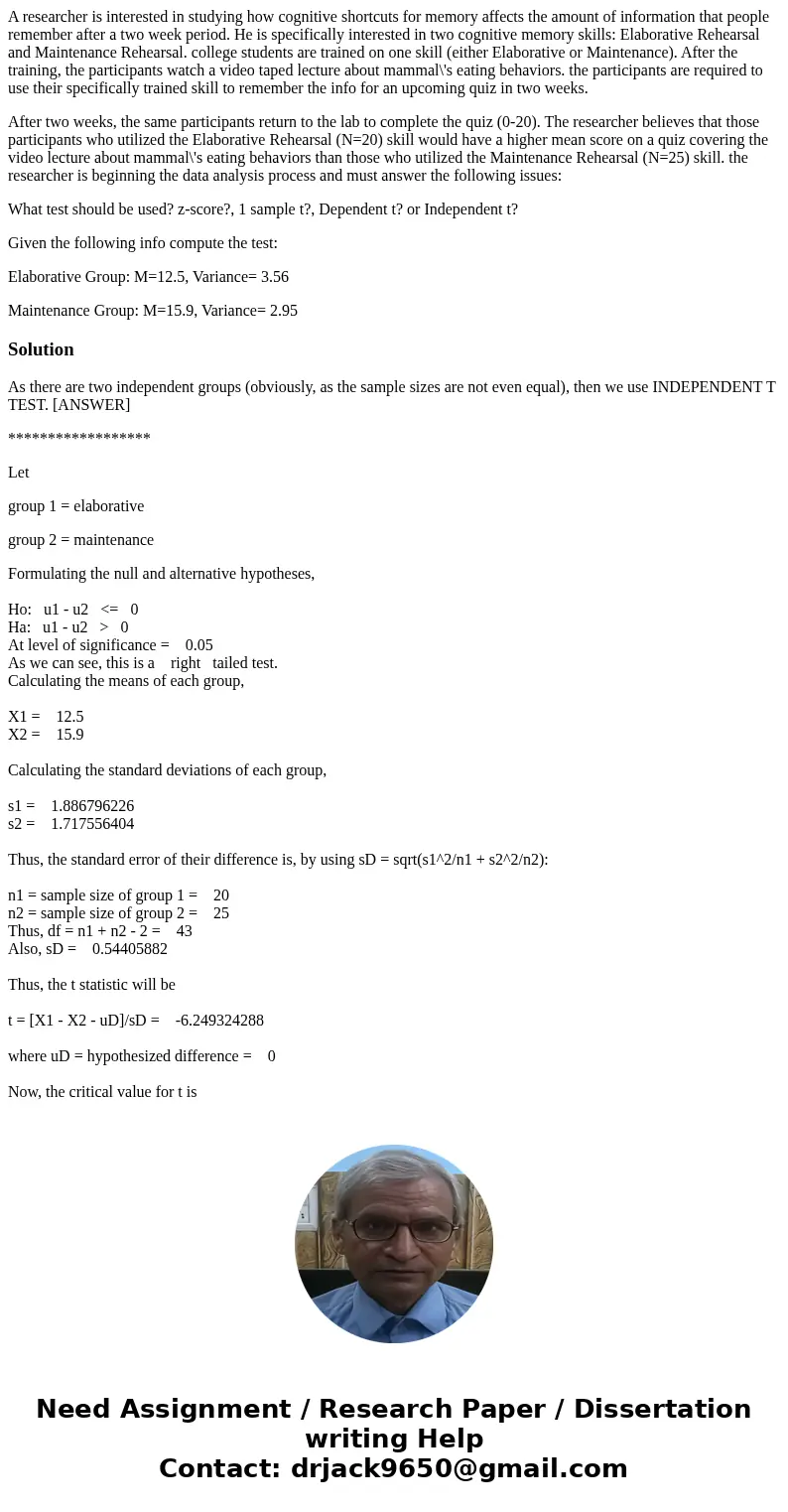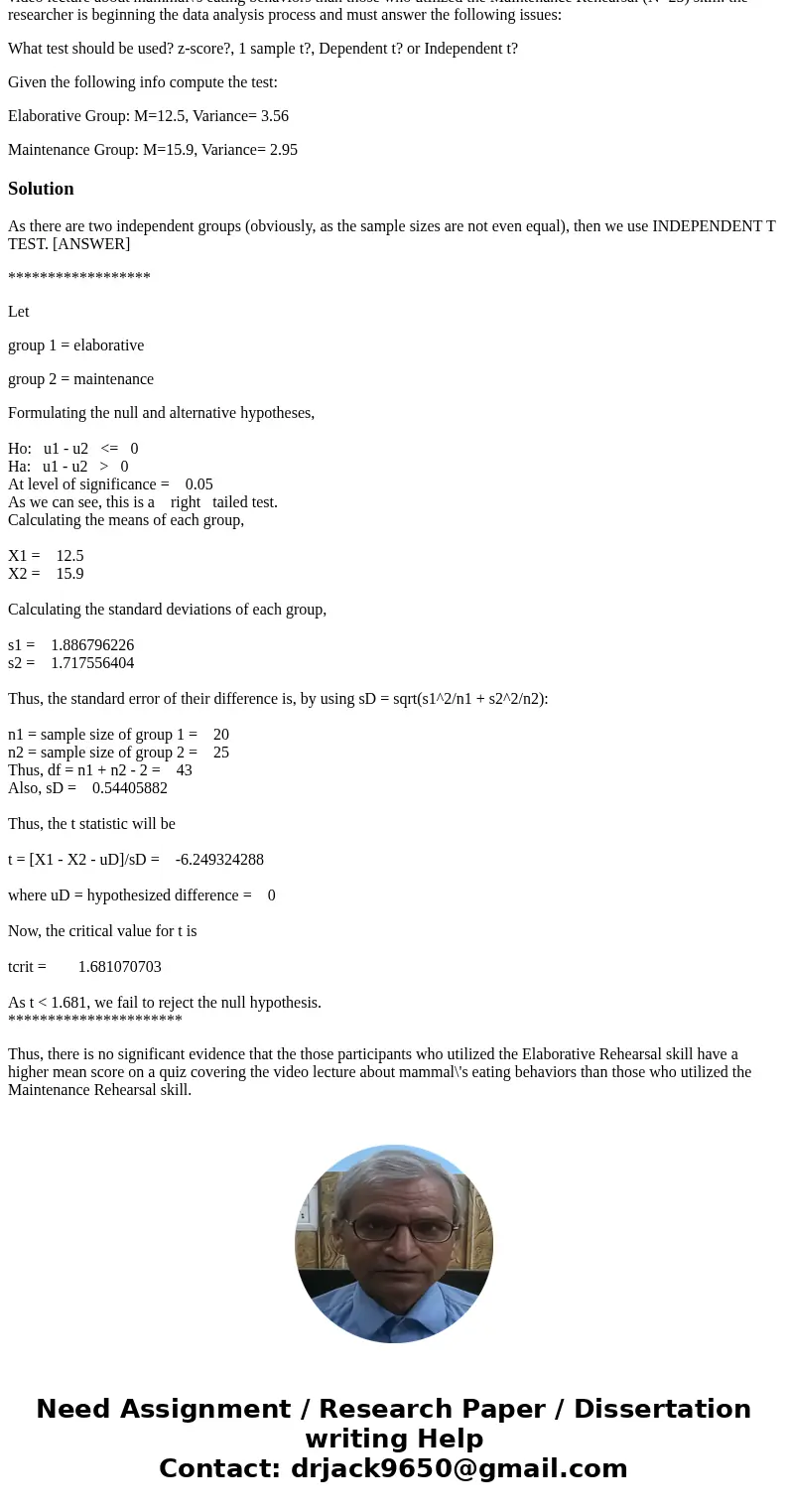A researcher is interested in studying how cognitive shortcu
A researcher is interested in studying how cognitive shortcuts for memory affects the amount of information that people remember after a two week period. He is specifically interested in two cognitive memory skills: Elaborative Rehearsal and Maintenance Rehearsal. college students are trained on one skill (either Elaborative or Maintenance). After the training, the participants watch a video taped lecture about mammal\'s eating behaviors. the participants are required to use their specifically trained skill to remember the info for an upcoming quiz in two weeks.
After two weeks, the same participants return to the lab to complete the quiz (0-20). The researcher believes that those participants who utilized the Elaborative Rehearsal (N=20) skill would have a higher mean score on a quiz covering the video lecture about mammal\'s eating behaviors than those who utilized the Maintenance Rehearsal (N=25) skill. the researcher is beginning the data analysis process and must answer the following issues:
What test should be used? z-score?, 1 sample t?, Dependent t? or Independent t?
Given the following info compute the test:
Elaborative Group: M=12.5, Variance= 3.56
Maintenance Group: M=15.9, Variance= 2.95
Solution
As there are two independent groups (obviously, as the sample sizes are not even equal), then we use INDEPENDENT T TEST. [ANSWER]
******************
Let
group 1 = elaborative
group 2 = maintenance
Formulating the null and alternative hypotheses,
Ho: u1 - u2 <= 0
Ha: u1 - u2 > 0
At level of significance = 0.05
As we can see, this is a right tailed test.
Calculating the means of each group,
X1 = 12.5
X2 = 15.9
Calculating the standard deviations of each group,
s1 = 1.886796226
s2 = 1.717556404
Thus, the standard error of their difference is, by using sD = sqrt(s1^2/n1 + s2^2/n2):
n1 = sample size of group 1 = 20
n2 = sample size of group 2 = 25
Thus, df = n1 + n2 - 2 = 43
Also, sD = 0.54405882
Thus, the t statistic will be
t = [X1 - X2 - uD]/sD = -6.249324288
where uD = hypothesized difference = 0
Now, the critical value for t is
tcrit = 1.681070703
As t < 1.681, we fail to reject the null hypothesis.
**********************
Thus, there is no significant evidence that the those participants who utilized the Elaborative Rehearsal skill have a higher mean score on a quiz covering the video lecture about mammal\'s eating behaviors than those who utilized the Maintenance Rehearsal skill.


 Homework Sourse
Homework Sourse